O Abdul Latif Jameel Poverty Action Lab (J-PAL) é um centro de pesquisa global que trabalha para reduzir a pobreza, garantindo que as políticas sejam informadas por evidências científicas. Ancorado por uma rede de mais de 1,000 pesquisadores em universidades ao redor do mundo, o J-PAL conduz avaliações de impacto randomizadas para responder a perguntas críticas na luta contra a pobreza.
Os cofundadores da J-PAL, Abhijit Banerjee e Esther Duflo, junto com o afiliado de longa data Michael Kremer, receberam o Prêmio Nobel de Economia de 2019 por sua abordagem pioneira para aliviar a pobreza global.
Pesquisa
No J-PAL, acreditamos que investir em pesquisas rigorosas é essencial para encontrar soluções para os maiores desafios do mundo. Trabalhando com parcerias de implementação, os professores e professoras afiliados do J-PAL realizam avaliações de impacto aleatórias para testar e melhorar a eficácia dos programas sociais.
Pesquisadores e pesquisadoras do J-PAL já lideraram mais de 1.600 avaliações aleatórias em uma ampla variedade de tópicos, desde água potável até microfinanças e prevenção ao crime. O grupo de pesquisa do J-PAL ajuda a criar a infraestrutura necessária para apoiar a pesquisa de nossos afiliados em todo o mundo.
A equipe de pesquisa estabelece relacionamentos com implementadores e implementadoras no local e contribui para o desenho de instrumentos de pesquisa, coleta de dados, análise estatística e publicação de dados. Juntos, professores afiliados e equipe de pesquisa estabeleceram o J-PAL como líder na realização de avaliações de impacto de alta qualidade.
Também criamos recursos de pesquisa práticos e os tornamos acessíveis a todos. Nós nos concentramos em ferramentas projetadas para ajudar pesquisadores e pesquisadoras a desenvolver e realizar avaliações aleatórias e apoiar quem ensina este método a outras pessoas.
Nossa biblioteca de recursos abrangente apresenta manuais de avaliação, modelos e exemplos de diferentes ferramentas de análise e pesquisa, ferramentas de codificação para STATA, diretrizes sobre ética e transparência e exemplos de slides de palestras e estudos de caso. O J-PAL também oferece aos professores afiliados bolsas e assistência técnica para promover a transparência da pesquisa.
Além de gerar recursos de pesquisa, a equipe do J-PAL atua como “matchmakers”, ajudando a conectar afiliadas com parceiros e parceiras de implementação para catalisar novas pesquisas e inovações. Nossas iniciativas de financiamento para professores e professoras afiliados apoiam avaliações aleatórias que buscam soluções para desafios políticos em governança, educação pós-primária, prestação de serviços de saúde e saúde infantil, entre outros tópicos.
Desta forma, a pesquisa do J-PAL contribui para o ecossistema de conhecimento e evidências sobre questões-chave em política social e desenvolvimento internacional.
Informações para Apoiar Políticas e Práticas
O J-PAL traduz pesquisas em ação, promovendo uma cultura de formulação de políticas informadas por evidências em todo o mundo. Nossa análise e divulgação de políticas ajuda governos, ONGs, doadores e o setor privado a aplicar evidências obtidas em avaliações aleatórias em seu trabalho e contribui para o discurso público em torno de algumas das questões mais urgentes em política social e desenvolvimento internacional.
O J-PAL preenche as lacunas entre pesquisadores e formuladores de políticas. Entendemos que, para que dados e pesquisas sejam influentes, eles devem abordar as prioridades locais e ser acessíveis aos tomadores de decisão.
Trabalhamos com professores e professoras afiliados para destilar resultados provenientes de avaliações de impacto rigorosas em lições claras, concisas e relevantes para os formuladores de políticas. Com uma compreensão profunda do cenário da pesquisa científica de alta qualidade, desenvolvemos e disseminamos ideias de políticas transversais.
O J-PAL também constrói parcerias com governos, ONGs e tomadores e tomadoras de decisão de alto nível para compartilhar estruturas e aplicar evidências globais a contextos locais e apoiar o uso de evidências para impulsionar a reforma de políticas. Inclui-se aqui fornecer financiamento, assistência técnica e pessoal integrado para ajudar a moldar programas e políticas que produzam resultados.
Até o momento, mais de 600 milhões de pessoas já foram alcançadas por programas e políticas informadas por avaliações de pesquisadores e pesquisadoras afiliados ao J-PAL.
Educação e Treinamento
Com foco em aprendizado e inovação, o J-PAL trabalha para desenvolver a capacidade de pesquisadores e pesquisadoras que produzem evidências, equipes de governo e organizações doadoras que as utilizam e quem defende a estruturação de políticas informadas por evidências. Criamos cursos online abertos de nível universitário e oferecemos programas de treinamento presenciais em todo o mundo que ajudam as pessoas a se tornarem melhores produtoras e usuárias de evidências científicas.
Embora a ideia de avaliações de impacto seja intuitivamente simples, seguir métodos rigorosos é importante para garantir que a pesquisa seja da mais alta qualidade e relevante para formular políticas.
O conjunto de recursos de treinamento do J-PAL inclui cursos presenciais de Educação Executiva, workshops personalizados para governos e outros parceiros e vários cursos online gratuitos.
Em nossos treinamentos para organizações políticas, participantes discutem a importância de avaliações de necessidades, teorias de mudança, medições efetivas de resultados, controle de qualidade e monitoramento, todas ferramentas essenciais para a realização de avaliações de impacto. Os treinamentos também ajudam tomadores e tomadoras de decisão a distinguir evidências de alta qualidade de evidências de baixa qualidade.
Muitos de nossos vídeos de palestras, estudos de caso e outros recursos de ensino estão disponíveis online sem nenhum custo.
O J-PAL e o MIT Economics também desenvolveram uma série de cursos on-line rigorosos para educar os alunos sobre o uso de dados na formulação de políticas como parte da Política MITx MicroMasters em Dados, Economia e Desenvolvimento.
Por meio de cursos on-line e exames presenciais, os participantes do MicroMasters obtêm uma base sólida em microeconomia, economia do desenvolvimento e probabilidade e estatística, e se envolvem com pesquisas de ponta na área. A maioria dos cursos MicroMasters é ministrada por professores e professoras do MIT e estão abertos a quem tiver interesse em usar evidências para promover políticas e programas eficazes.
Past reports
2023-24
The 2023-24 edition of “Improving Lives Through Evidence” is a call to action for urgent collaboration to achieve a shared vision for a better world. Instead of despairing at the size and stickiness of our problems, we must proactively collaborate on designing innovative solutions, rigorously testing them, and then working carefully to scale them up.
2022-23
As we enter J-PAL’s third decade, there is no shortage of challenges: Climate change, humanitarian crises, persistent bias and discrimination, and lagging early childhood development are all sobering reminders of how much urgent work there is still to do.
2021-22
The Covid-19 pandemic continues to disrupt people’s lives and communities across the world. Evidence-informed policymaking is key to ensuring that the most vulnerable are able to adapt. In the 2021-22 edition of "Improving Lives Through Evidence," learn how we forged partnerships for more equitable and evidence-informed policies in 2021, and how we will build on our vision in the new year.
2020-21
Last year brought new challenges and demanded innovative solutions. Read how our research, policy, and capacity building work evolved to adapt to lockdowns and meet new evidence needs in the 2020-21 edition of “Improving Lives Through Evidence."
2019-20
We launched many exciting initiatives to expand the frontiers of research and evidence-informed policy, and our existing research initiatives contributed funding to help launch 56 new randomized evaluations that test the most effective approaches to fighting poverty. We grew our online MicroMasters program and admitted the first class of students in our new Master’s in Data, Economics, and Development Policy at MIT. And we welcomed 20 top researchers to our affiliate network, while growing our talented team of research, policy, training, and operations staff worldwide.
2019 was also notable for an exceptional reason: J-PAL co-founders Abhijit Banerjee and Esther Duflo and our longtime affiliate Michael Kremer were awarded the 2019 Nobel Prize in Economics for their experimental approach to alleviating global poverty.
História
O Poverty Action Lab foi fundado em 2003 no Instituto de Tecnologia de Massachusetts (MIT) pelos professores Abhijit Banerjee, Esther Duflo e Sendhil Mullainathan, com o objetivo de transformar a forma como o mundo aborda os desafios da pobreza global.
Em 2005, o laboratório fez parceria com a Community Jameel, uma organização global independente que promove a ciência para ajudar as comunidades a prosperar em um mundo em rápida mudança. Após a parceria, o laboratório foi renomeado como Abdul Latif Jameel Poverty Action Lab (J-PAL) em homenagem ao falecido Abdul Latif Jameel, fundador da Abdul Latif Jameel e pai do ex-aluno do MIT e fundador e presidente da Community Jameel, Mohammed Jameel KBE.
Hoje, a equipe principal do J-PAL inclui mais de 400 profissionais de pesquisa, política, educação e treinamento em sete escritórios em todo o mundo.
Os cofundadores do J-PAL, Abhijit Banerjee e Esther Duflo, junto com o afiliado de longa data Michael Kremer, receberam o Prêmio Nobel de Economia de 2019 por sua abordagem pioneira para aliviar a pobreza global. Em seu anúncio, o Comitê do Nobel observou: "A pesquisa conduzida pelos laureados deste ano melhorou consideravelmente nossa capacidade em combater a pobreza global. Em apenas duas décadas, sua nova abordagem baseada em experimentos transformou a economia de desenvolvimento, que agora é um campo florescente de pesquisa."
Nosso trabalho é generosamente apoiado por fundações, governos e indivíduos visionários. Principais doadores e doadoras incluem Arnold Ventures, Co-Impact, Community Jameel, Echidna Giving, The Bill and Melinda Gates Foundation, Google.org, The William and Flora Hewlett Foundation, King Philanthropies, The John D. and Catherine T. MacArthur Foundation, e The Douglas B. Marshall Jr. Foundation.
Timeline
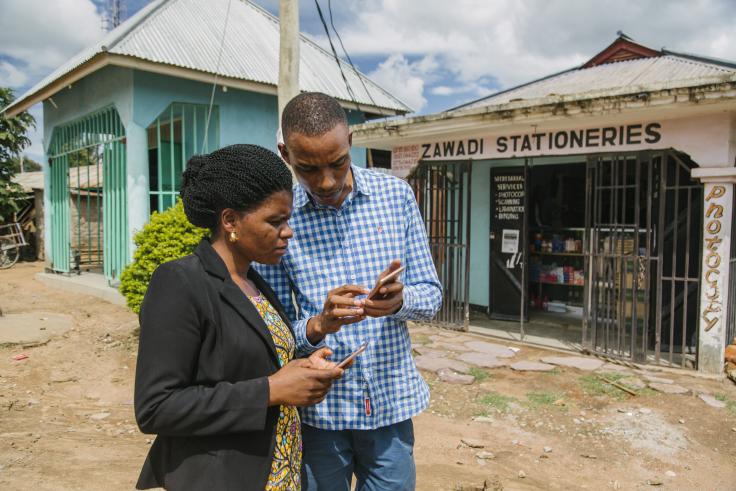
J-PAL publishes the 2024-25 edition of Improving Lives through Evidence, outlining key achievements and priorities for the coming year.
Global Executive Director Iqbal Dhaliwal reflects on the end of USAID and the many collaborations between USAID, J-PAL, and members of our research network to pilot, evaluate, and scale innovative solutions to alleviate poverty.
J-PAL, with Community Jameel, launch the Alliance for Data, Evaluation, and Policy Training (ADEPT), a global network of universities, governments, and other members working to empower the next generation of policymakers, decision makers, and researchers with the tools to innovate, test, and scale the most effective social policies and programs.
Timeline

J-PAL publishes the 2024-25 edition of Improving Lives through Evidence, outlining key achievements and priorities for the coming year.
Global Executive Director Iqbal Dhaliwal reflects on the end of USAID and the many collaborations between USAID, J-PAL, and members of our research network to pilot, evaluate, and scale innovative solutions to alleviate poverty.
J-PAL, with Community Jameel, launch the Alliance for Data, Evaluation, and Policy Training (ADEPT), a global network of universities, governments, and other members working to empower the next generation of policymakers, decision makers, and researchers with the tools to innovate, test, and scale the most effective social policies and programs.
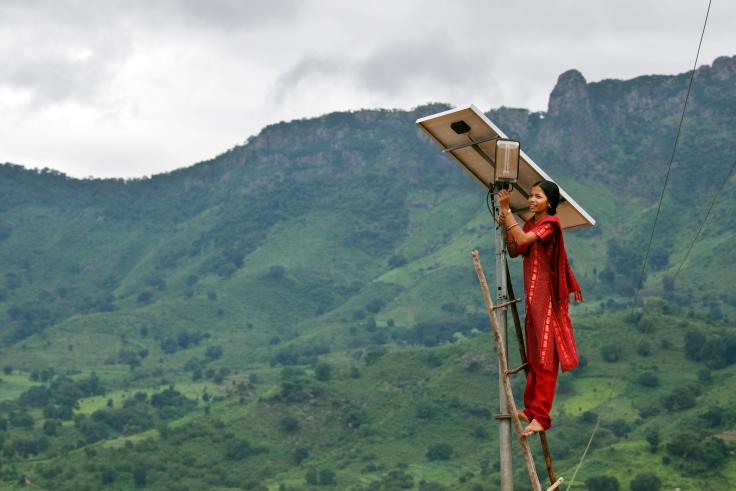
J-PAL publishes the 2023-24 edition of Improving Lives Through Evidence, outlining key achievements and priorities for the coming year.
J-PAL Europe launches the Humanitarian Protection Initiative to help improve the protection of conflict-affected populations.
J-PAL Africa, the City of Cape Town, and Community Jameel launch the Water, Air, and Energy (WAE) Lab to to generate evidence-based solutions aimed at improving access to clean air, water, and reliable energy for Capetonians.
J-PAL's research network grows to include 359 affiliated professors and 667 invited researchers, totaling over 1000 affiliated researchers.
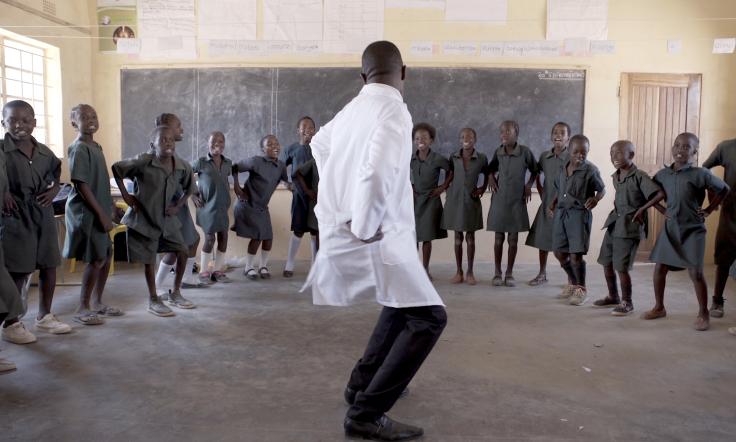
J-PAL celebrates its twentieth anniversary. Read more details in the 2023 edition of “Improving Lives through Evidence.”
J-PAL launches the Learning for All Initiative to generate evidence to identify education solutions for parents, schools, and governments.
J-PAL Europe launches the Displaced Livelihoods Initiative to help advance sustainable livelihoods for displaced and host communities.
J-PAL renames the MicroMasters® Program in Data, Economics, and Development Policy to the MicroMasters® Program in Data, Economics, and Design of Policy (DEDP) to reflect the expanded curriculum, which includes a Public Policy Track.
J-PAL's research network grows to include 324 affiliated professors and 632 invited researchers.
J-PAL South Asia launches the Solutions and Advancements through Research for Water and Air (SARWA) to increase access to clean air and water for millions of Indians.
J-PAL partners with University Mohammed VI Polytechnic (UM6P) and forms the UM6P-J-PAL Agricultural Lab for Africa (UJALA) to design and implement rigorous impact evaluations of policies and programs that improve food security in sub-Saharan Africa.
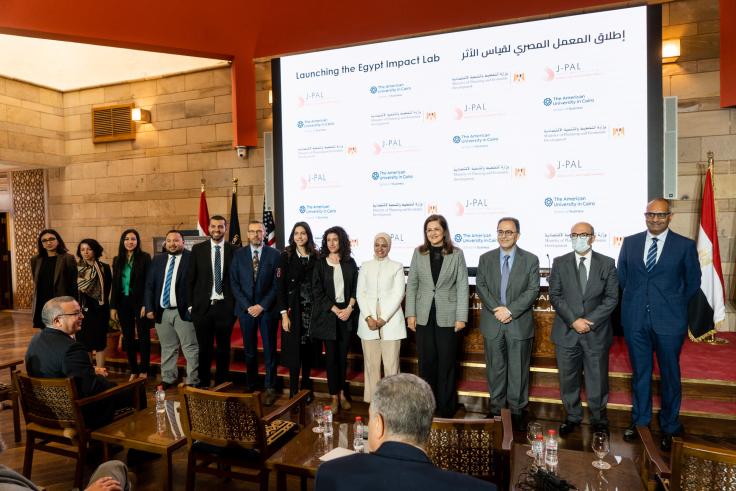
In partnership with Egypt's Ministry of Planning and Economic Development, J-PAL MENA launches the Egypt Impact Lab to strengthen the effectiveness of Egypt’s poverty alleviation policies through rigorous evaluation and innovation.
J-PAL South Asia launches the Alliance for Scaling Policy Impact through Research and Evidence (ASPIRE) to strengthen the culture of evidence-based policymaking in India.
J-PAL launches its eleventh sector, Social Protection, and an accompanying Social Protection Initiative to generate rigorous evidence on the effectiveness of social protection programs and to help partners apply evidence to decision-making. The new sector and initiative are chaired by Benjamin Olken (MIT) and Rema Hanna (Harvard).
J-PAL publishes the 2021-22 edition of Improving Lives Through Evidence: Trusted Partnerships for Growth, outlining key achievements and priorities for the coming year.
Community Jameel and Co-Impact Lab announce a $6 million donation to support J-PAL’s expanded Evidence to Policy work, with a particular focus in Africa, LAC, MENA, and South Asia.
J-PAL's research network grows to include 294 affiliated professors and 424 invited researchers.
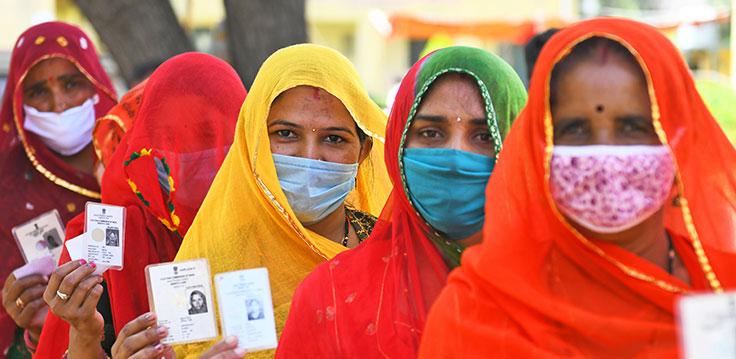
The Digital Agricultural Innovations and Services Initiative, a partnership between J-PAL and CEGA, is launched to support innovative, policy-relevant research on the availability, quality, and reach of bundled digital agricultural solutions and services for small-scale agricultural producers.
J-PAL South Asia launches the Indian Scholars Program to strengthen ties with India-based researchers.
The Jobs and Opportunity Initiative is launched in Brazil (JOI Brazil) to evaluate innovative strategies that address the country’s most pressing employment challenges.
The 2020-21 edition of Improving Lives Through Evidence is published.
The second cohort of thirteen Master's in Data, Economics, and Development Policy (subsequently renamed Data, Economics, and Design of Policy) students arrive safely at MIT.
J-PAL continues to respond to Covid-19.
J-PAL's research network grows to include 261 affiliated professors and 274 invited researchers.
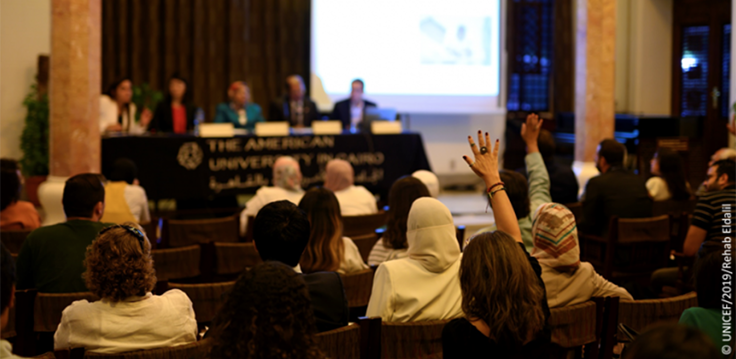
J-PAL launches the Gender and Economic Agency Initiative to build a body of evidence on policies and programs to promote women’s work and enhance women’s economic agency in East Africa and South Asia.
The first class of 22 students from 14 countries graduated from J-PAL and MIT’s joint Master’s in Data, Economics, and Development Policy program (subsequently renamed Data, Economics, and Design of Policy).
J-PAL North America launches the COVID-19 Recovery and Resilience Initiative, which aims to create a playbook of evidence-based policies to help communities in the United States recover in the wake of COVID-19.
J-PAL launches the $25 million King Climate Action Initiative (K-CAI) in partnership with King Philanthropies. The initiative will support innovative research and policy engagement to combat climate change and poverty around the world.
J-PAL Middle East and North Africa opens at the American University in Cairo with support from Community Jameel, becoming J-PAL’s seventh regional research center.
J-PAL launches the Jobs and Opportunity Initiative to generate a body of policy-relevant rigorous research that addresses pressing labor market challenges.
J-PAL responds to the COVID-19 pandemic, taking major steps to ensure the safety of staff, researchers, research participants, and communities; and pivot research, training, and policy efforts to respond to urgent needs created by the pandemic.
J-PAL Southeast Asia launches the Inclusive Financial Innovation Initiative to answer important policy questions at the forefront of the region’s economic growth.
J-PAL's research network grows to include 224 affiliated professors and 274 invited researchers.

J-PAL co-founders Abhijit Banerjee and Esther Duflo, above, with longtime J-PAL affiliate Michael Kremer, are awarded the 2019 Sveriges Riksbank Prize in Economic Sciences in Memory of Alfred Nobel. In awarding the prize, the Royal Swedish Academy of Sciences said, "The research conducted by this year’s Laureates has considerably improved our ability to fight global poverty. In just two decades, their new experiment-based approach has transformed development economics, which is now a flourishing field of research."
Teaching at the Right Level (TaRL) Africa, led jointly by J-PAL and Pratham, is selected as one of five initiatives receiving inaugural funding from Co-Impact, a global philanthropic collaborative for systems change.
The Innovation in Government Initiative launches, a series of scale-up innovation competitions open to teams of governments, J-PAL regional offices, and J-PAL affiliated professors in low- and middle-income countries. Winning teams will receive funding from J-PAL to support a broad range of technical assistance to governments to adapt, pilot, monitor, evaluate, and scale evidence-informed innovations.
The European Social Inclusion Initiative launches, generating and sharing widely applicable lessons about which programs are effective at promoting the inclusion of migrants and refugees in Europe.
The Innovations in Data and Experiments for Action (IDEA) Initiative launches, dedicating funding and technical assistance to increase the use of administrative data by governments, nonprofits, and private firms for evidence-informed decision-making.
The Africa Digital Identification and Finance Initiative (DigiFI) launches, studying the impact of innovative government and private sector payment systems and digital identification reforms on citizens and governments across Africa. DigiFI establishes the African Scholars program to create more opportunities for African scholars to develop and drive the research agenda on the African continent.
J-PAL's research network grows to include 194 affiliated professors and 229 invited researchers.
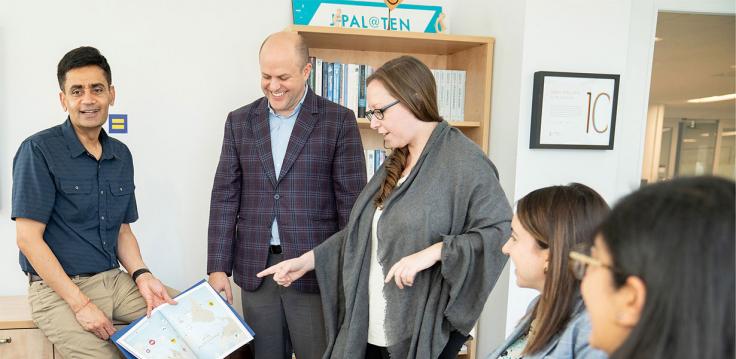
Iqbal Dhaliwal, pictured above, is appointed Global Executive Director of J-PAL. Previously, Iqbal served as J-PAL's Deputy Executive Director, and founding Director of its Policy and Communications group.
J-PAL launches Policy Insights, a library of policy lessons emerging from randomized evaluations. Combined with a detailed understanding of context and program implementation, Policy Insights are designed to be practical inputs for policy and program design.
J-PAL launches the Gender sector, focusing on producing cross-cutting insights on promoting gender equality and women's and girls' empowerment.
J-PAL launches the Firms sector, focusing on identifying how best to help private sector firms grow, innovate, and contribute to economic growth, and on understanding the impact of firms on workers' wellbeing in and out of the workplace.
J-PAL and the American University in Cairo (AUC) partner to create the J-PAL/AUC Initiative for Egypt. Through this partnership, AUC hosts J-PAL staff in Egypt, supports evaluations by J-PAL affiliated researchers, and collaborates with J-PAL on policy and capacity building efforts.
J-PAL North America launches the Education Technology Innovation Competition to support education leaders in using randomized evaluations to generate evidence on how technology can improve student learning, with support from the Laura and John Arnold Foundation and the Overdeck Family Foundation.
J-PAL's research network grows to include 174 affiliates professors and 194 invited researchers.
J-PAL and MIT Economics partner to launch the MicroMasters in Data, Economics and Development Policy (subsequently renamed Data, Economics, and Design of Policy), which offers learners from around the world the opportunity to take rigorous online classes in development economics. With the goal of empowering young professionals to hone their technical skills, the program reached over 10,000 learners from more than 180 countries in 2017 alone.
J-PAL launches three research initiatives to generate new randomized evaluations that focus on open questions relevant to policymakers: the Cash Transfers for Child Health Initiative, based at J-PAL South Asia; the Skills for Youth Program, based at J-PAL Latin America and the Caribbean; and the Crime and Violence Initiative. DFID awards J-PAL and IPA US$16 million to support innovative research in governance, crime, and conflict.
The Zambian Ministry of General Education commits to scaling up the evidence-backed Teaching at the Right Level approach to 1,800 schools in the country over the next three years, with support from the USAID Zambia Mission and USAID Development Innovation Ventures, and pilot funding provided by J-PAL's Government Partnership Initiative.
J-PAL Latin America and the Caribbean partners with Brazil's National School of Public Administration (ENAP) to develop and launch the first-ever massive open online course on impact evaluation to be offered in Portuguese. The course is an adaptation of J-PAL's flagship executive education course, Evaluating Social Programs, and will be included as a regular ENAP course offering, reaching 80,000 public officials every year. Funding for the course's development and launch was provided by J-PAL’s Government Partnership Initiative.
Former Executive Director Rachel Glennerster takes leave to serve as Chief Economist at the UK Department for International Development.
J-PAL's research network grows to include 159 affiliated professors and 140 invited researchers.
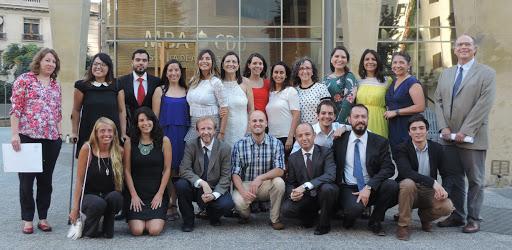
J-PAL receives a grant from the Alfred P. Sloan Foundation and Laura and John Arnold Foundation to improve research quality, reproduce research results on a large scale, and launch online training programs for transparency and data security. This effort represents one of the first of its kind for randomized evaluations in the social sciences.
J-PAL Latin America and the Caribbean (LAC) and the Instituto Tecnológico Autónomo de México (ITAM) launch a partnership to boost research projects in Mexico and the region. Through this partnership, ITAM hosts J-PAL LAC staff in Mexico, supports evaluations by J-PAL affiliated researchers, and collaborates with J-PAL LAC on policy outreach.
J-PAL LAC launches a Diploma in Impact Evaluation of Public Policy and Social Programs (Diplomado en Evaluación de Impacto de Programas y Políticas Públicas) in collaboration with the Economics Department at the Pontificia Universidad Católica de Chile. This rigorous one-year program is taught by J-PAL affiliated professors and offers high-quality education in development economics, impact evaluation methods, and evaluation management (students pictured above).
J-PAL's research network grows to include 142 affiliated professors and 128 invited researchers.
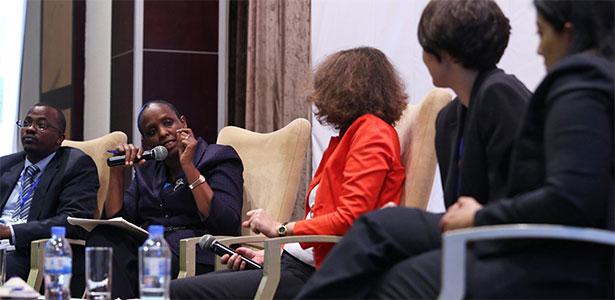
J-PAL launches the Government Partnership Initiative (GPI) with support from Community Jameel to build long-term partnerships between governments, J-PAL offices, and affiliated researchers to increase the use of evidence in policymaking. Above, policymakers and J-PAL staff present at a conference on partnerships for evidence-informed decisionmaking in Rwanda.
J-PAL North America launches the State and Local Innovation Initiative to facilitate partnerships between US state and local governments and leading academic researchers from J-PAL’s global network to identify evidence-informed solutions to challenging social problems.
J-PAL's research network grows to include 128 affiliated professors and 101 invited researchers.

J-PAL launches an online version of the Executive Education course on edX, J-PAL101x: Evaluating Social Programs. Over 12,000 students from nearly 180 countries registered for the first course, and nearly 1,000 received certificates of completion.
J-PAL receives the Albert O. Hirschman Prize from the Social Science Research Council in recognition of their commitment to producing new social scientific knowledge that confronts deep practical and ethical issues.
J-PAL begins a long-term partnership with the Government of Tamil Nadu to institutionalize the use of evidence in policymaking by evaluating innovative programs, strengthening monitoring systems, and enhancing the officials’ capacity to produce and use scientific evidence.
J-PAL LAC and IPA begin a partnership with the Ministry of Education of Peru to implement an Education Lab (MineduLab) to design and evaluate low-cost, innovative, interventions to improve learning outcomes.
J-PAL launches the Crime, Violence, and Conflict sector.
J-PAL North America launches the U.S. Health Care Delivery Initiative with support from the Laura and John Arnold Foundation and the Robert Wood Johnson Foundation.
J-PAL's research network grows to include 107 affiliates and 79 invited researchers.
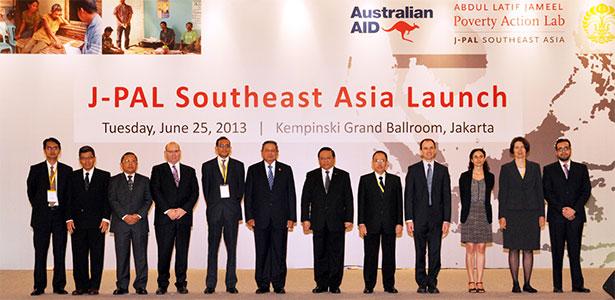
The President of Indonesia inaugurates J-PAL Southeast Asia, above, established at the Institute for Economic and Social Research at the University of Indonesia with support from Australia's Department of Foreign Affairs and Trade.
J-PAL North America opens at the Department of Economics at the Massachusetts Institute of Technology (MIT) with support from the Alfred P. Sloan Foundation and the Laura and John Arnold Foundation.
J-PAL begins a long-term partnership with the Ministry of Finance and Economic Planning of Rwanda to discuss scientific evidence and how their development policies can be informed.
J-PAL affiliate Raj Chetty wins the John Bates Clark medal, awarded to the top economist under age 40.
J-PAL's affiliate network grows to include 90 talented professors. 11 professors join J-PAL's research network as invited researchers.
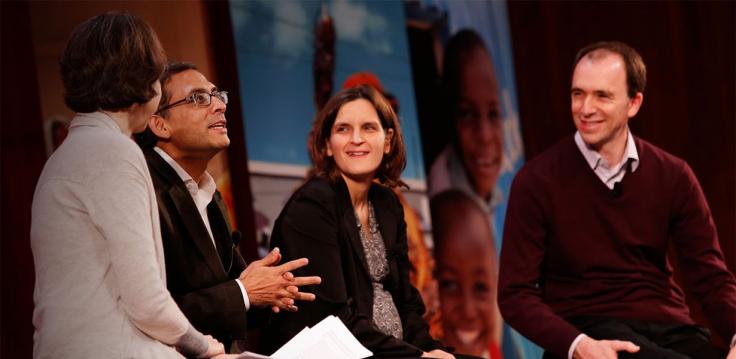
MIT professor Ben Olken, pictured above (right), joins Abhijit Banerjee (second from left) and Esther Duflo (center) as Co-Director of J-PAL.
J-PAL LAC and its partners Enterprise Solutions to Poverty (SEP), Innovations for Poverty Action (IPA), the Ministry of Economy and Finance (MEF), and the Ministry of Social Development and Inclusion of Peru (MIDIS) of Peru assembles the Quipu Commission to generate evidence that the government can use to design and implement better social policies.
The Youth Initiative (YI) and the Post-Primary Education (PPE) are launched with support from the Nike Foundation, and Echidna Giving, the John D. and Catherine T. MacArthur Foundation, the Douglas B. Marshall, Jr. Family Foundation, and the UK Department for International Development.
Amy Finkelstein, Scientific Director of J-PAL North America, wins the John Bates Clark medal. The medal is awarded to the top economist under age 40.
Seven professors join J-PAL's affiliate network, bringing the total number of affiliates to 71.
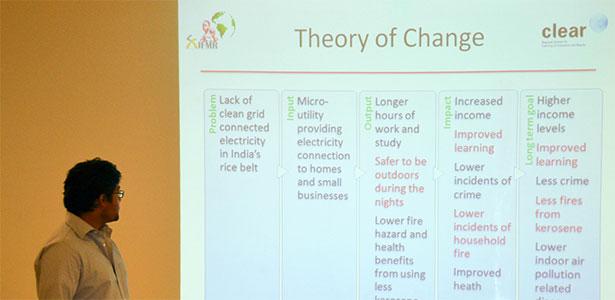
The Regional Centers for Learning on Evaluation and Results (CLEAR) is established at J-PAL South Asia with support from the World Bank to strengthen the monitoring and evaluation capacity of governments and civil societies.
J-PAL assembles the Compass Commission, a group of international and local academics who will identify the major social policy challenges in Chile and propose innovative programs and their evaluations to the Government.
J-PAL begins long-term partnership with India’s National Academy of Administration to conduct evidence workshops and trainings on impact evaluations for senior civil servants of the Indian Administrative Service (IAS).
J-PAL’s research is organized in seven sectors: Agriculture, Education, Environment and Energy, Finance and Microfinance, Health, Labor Markets, and Political Economy and Governance.
The Governance Initiative (GI) and the Urban Services Initiative (USI) are launched with support from The William and Flora Hewlett Foundation and the UK Department for International Development, and the Bill & Melinda Gates Foundation respectively.
J-PAL's affiliate network grows to include 64 talented professors.
J-PAL Africa is established at the Southern Africa Labour and Development Research Unit (SALDRU) at the University of Cape Town in South Africa with support from The William and Flora Hewlett Foundation.
J-PAL creates a Board of Directors to provide overall strategic guidance and also help expand activities in research, capacity building, and policy outreach.
Esther Duflo wins the John Bates Clark medal, awarded to the top economist under age 40. She is the second woman to win the award.
Esther Duflo presents a TED Talk on social experiments to fight poverty (above).
J-PAL's affiliate network grows to include 51 talented professors.
Iqbal Dhaliwal, above, joins J-PAL as founding director of a dedicated policy group established to bridge the gap between researchers and policymakers. J-PAL's policy analysis and outreach helps governments, NGOs, donors, and the private sector apply evidence from randomized evaluations to their work, and contributes to public discourse around some of the most pressing questions in social policy and international development.
J-PAL Latin America and Caribbean is founded at the Pontifícia Universidad Católica in Santiago, Chile with the support of the Colunga Foundation.
The Agricultural Technology Adoption Initiative (ATAI) is launched with the Center for Effective Global Action (CEGA) at the University of California, Berkeley, with support from the Bill & Melinda Gates Foundation.
J-PAL's affiliate network grows to include 43 talented professors.
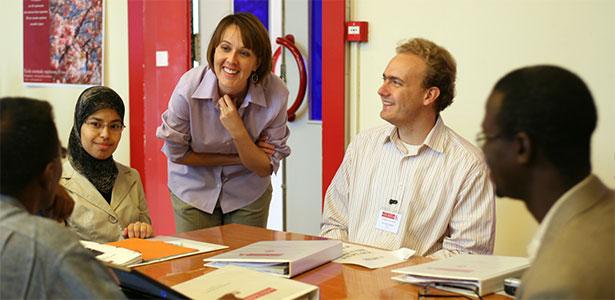
J-PAL Europe is launched at the Paris School of Economics in an effort to promote the use of randomized evaluations in rich countries.
J-PAL receives the BBVA Foundation Frontiers of Knowledge Award for Development Cooperation. The awards seek to recognize and encourage world-class research and artistic creation, prizing contributions of lasting impact for their originality, theoretical significance and ability to push the frontiers of the world.
J-PAL's affiliate network grows to include 27 talented professors.
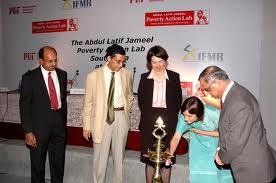
J-PAL South Asia is established at the Institute for Financial Management and Research in Chennai, India, with support of the Mulago Foundation.
J-PAL partners with the Young Global Leaders group to launch a scale-up initiative, Deworm the World, at the World Economic Forum in Davos. Deworm the World has since been scaled up to reach over 292 million children in India, Kenya, Ethiopia, Vietnam, and Nigeria.
J-PAL's affiliate network grows to include 15 talented professors.
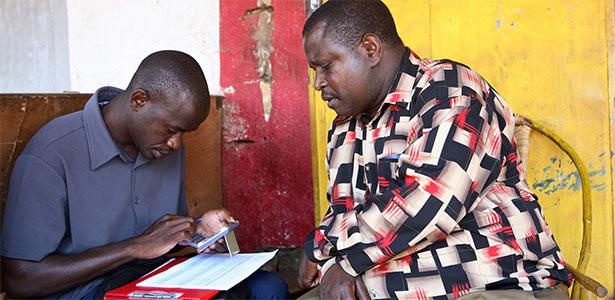
J-PAL receives core support from the William and Flora Hewlett Foundation, the John D. and Catherine T. MacArthur Foundation, the Nike Foundation, Russ Siegelman, and the Doug B. Marshall Jr. Foundation.
J-PAL's affiliate network grows to include 12 talented professors.
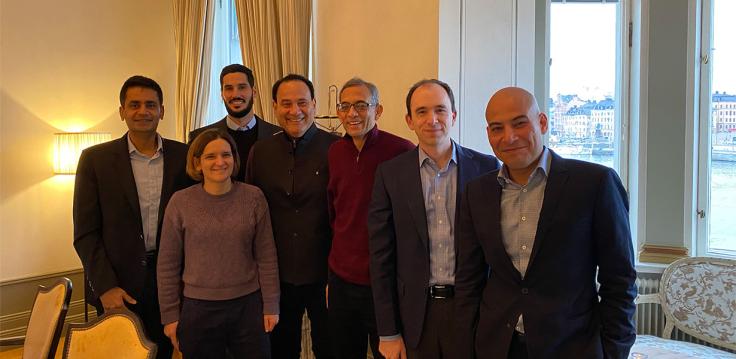
Photo (left to right): Iqbal Dhaliwal, Esther Duflo, Hassan Jameel, Mohammed Jameel, Abhijit Banerjee, Ben Olken, Fady Jameel.
MIT alumnus Mohammed Abdul Latif Jameel, pictured above standing with J-PAL's leadership, backs the Poverty Action Lab with three major endowments, and the lab is re-named in honor of his late father, Abdul Latif Jameel, founder of the Abdul Latif Jameel company. J-PAL formally partners with Community Jameel, an organization established in 2003 to continue the Jameel family's tradition of supporting social and economic sustainability. Thanks to this support, J-PAL is able to grow significantly in the following years.
J-PAL establishes its training group, and provides its first executive education courses in Cambridge, US and Chennai, India.
J-PAL's affiliate network grows to include 11 talented professors.
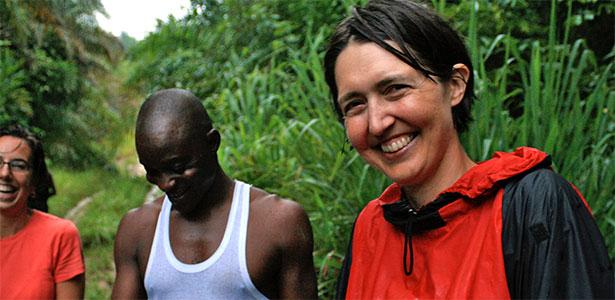
Rachel Glennerster joins J-PAL as executive director. Prior to J-PAL, Rachel (pictured above right) was an economic advisor at the UK Treasury and a development associate at the Harvard Institute for International Development. She acted as technical assistant to the UK Executive Director of the IMF and World Bank before joining the IMF staff in 1997, where she worked on debt relief and the IMF’s response to lessons of the Asian financial crisis.
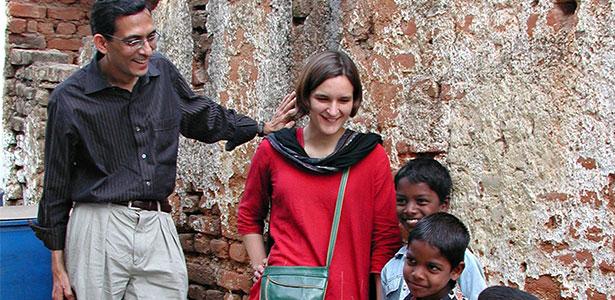
The Poverty Action Lab is founded at the Department of Economics at the Massachusetts Institute of Technology by professors Abhijit Banerjee and Esther Duflo (pictured above) and Sendhil Mullainathan. The objective of the center is to support the use of randomized evaluations, to train others in rigorous scientific evaluation methods, and to encourage policy changes based on results of randomized evaluations, all with the mission of reducing poverty through more effective policies and programs.
Five professors join the Poverty Action Lab in its first cohort of affiliates: Marianne Bertrand, Dean Karlan, Michael Kremer, Dan Levy, and Edward Miguel.
The lab begins a close partnership with Innovations for Poverty Action (IPA), a nonprofit founded by J-PAL affiliate Dean Karlan.